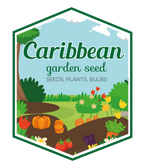
- Free shipping to lower 48 states on orders $54.95+
- (Most Items), excluding live plants, plant bulbs, and black plastic nursery crate.
- Most orders are processed by the next day !
- Safe Seed Pledge
- Satisfaction Guaranteed
- Select your desired size and/or color from the available options.
Japanese Long Cucumber SEEDS "Sooyow Nishiki" Asian Vegetable
FAST & FREE SHIPPING
Over 90% of our orders are processed and ship out by next business day.
We are currently processing and shipping most orders within 1-3 business days. (backorders not included) Due to high demand during the peak months of January to May, orders may require additional time for packaging /shipment.
Free shipping for orders over $54.95. Excludes live plants, fresh products And Stackable Black Plastic Nursery Crate
Shipping and handling charges will cover outbound freight and packaging materials. Fees are applicable to all orders, based on total order value pre-tax. Expedited services can be selected at Checkout with extra fees.
Japanese Long Cucumber "Sooyow Nishiki" ( Cucumis sativus ) Tender sweet and very crisp flesh, doesn't need peeling, Heirloom, Organic !
Asian cucumbers, commonly used in Asian cuisine, have a versatile nature and are ideal for both pickling and slicing. They hold significant value in Asian dishes, often being pickled or added raw to fresh salads. In China, they are even used in soups, including the skin. India incorporates cucumbers into raitas, while Thailand pairs them with onions, lemon, and fish sauce in a tangy salad. Japan uses cucumbers in soups, while Korea tends to use them in stir-fries. These Asian varieties are longer and have textured skin and a smaller seed cavity compared to Western cucumbers.
Cucumis sativus
This open pollinated sooyow type cucumber is easy to grow and heat tolerant. The skin is dark green with defined ridges and fine white spines that are easily removed by washing. It doesnât need peeling. The fruit has sweet and very crisp flesh. It has a monoecious flowering habit (plant produces both male and female flowers.) It produces more female flowers on the secondary and tertiary vines, so thatâs where most of the fruit will be harvested.
Growing Tip
Start plants indoors about one month before the last spring frost in your area, or outdoors after all danger of frost and the soil has warmed. Plant in rows, hills or on trellises. Good performers in large containers. Harvest frequently to keep the plants producing.
PLANTING Options
How to Plant Cucumbers
Cucumbers can be planted in containers, rows, hills, or raised beds. Be warned: one plant produces a lot of cucumbers. And, some plants can produce all summer long. So, think about spacing out plantings to harvest all season.
Containers
Hills
A hill of cucumbers. Know what this it? Because, I thought I had it down pat, and I was wrong. I thought it was about mounding the dirt for water retention around the roots. Well, sort of, but thereâs more to it than just that.
Vine crops are often grown this way, like cucumbers, squash, and melons. The idea of hill planting is to start the root system in the center. From there they grow outwards, not competing with each other for water or soil nutrients.
Again, hill planting is for your vine cucumbers. Hills need to be about 3 feet apart. Plant about 5 or so seeds in the hill. Once seedlings have established, reduce to only three plants. Instead of pulling up the seedling, just cut it off. This will prevent any disruption to the root system.
Remember, vine cucumber plants are better trellised. These plants have healthier vines, and harvesting is easier since you can see the fruit. Check here for a ton of information on home grown trellised cucumbers.
Raised Beds
You can plant any type of cucumber in a raised bed. The benefit of using raised beds with cucumbers is soil drainage. Raised beds, in general, will provide well drained soil.
I keep saying raised beds are my preferred gardening method. Thereâs a reason I say this: it makes gardening easier! Itâs easier to reach the vegetables, control soil health, and control pests and weeds.
Suggestions: Keep fruits picked to encourage more production. . Keep soil moderately moist during germination. Water deep and feed every 3 weeks.
Reminder: Plant some fresh dill for homemade pickles.
Companion Plants for Cucumbers
Growing these companion plants around cucumbers will be helpful: nasturtiums, radishes, marigolds, sunflowers, peas, beets, carrots, and dill.
HOW TO GROW GUIDE
LET OUR CUSTOMER SPEAK FOR US

![[Seeds] - Caribbeangardenseed](http://caribbeangardenseed.com/cdn/shop/files/gift-card-gift-card-1_1024x1024_dfa857db-9150-4315-a362-7f0bb3fb9c47_60x28.png?v=1722895789)








